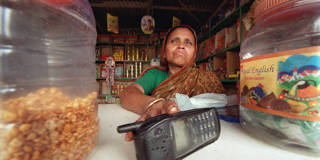Bangladesh’s virtuous cycle of technology-aided development stems from decades of sustained state-NGO collaboration, combined with an emphasis on grassroots initiatives to empower female entrepreneurs. This model has also given the country an unexpected advantage in managing the economic impact of the COVID-19 pandemic.
KUALA LUMPUR – As Bangladesh turns 50 this year, the country has much to celebrate. Its human-development progress has been exceptional compared to that of its South Asian neighbors. Sustained economic growth has reduced extreme poverty – not least because the early introduction of mobile phones at the grassroots level enabled the modernization of previously unconnected village economies. Moreover, Bangladesh has become more resilient to natural disasters such as cyclones and floods, and the state’s capacity to manage crises also has improved.

KUALA LUMPUR – As Bangladesh turns 50 this year, the country has much to celebrate. Its human-development progress has been exceptional compared to that of its South Asian neighbors. Sustained economic growth has reduced extreme poverty – not least because the early introduction of mobile phones at the grassroots level enabled the modernization of previously unconnected village economies. Moreover, Bangladesh has become more resilient to natural disasters such as cyclones and floods, and the state’s capacity to manage crises also has improved.